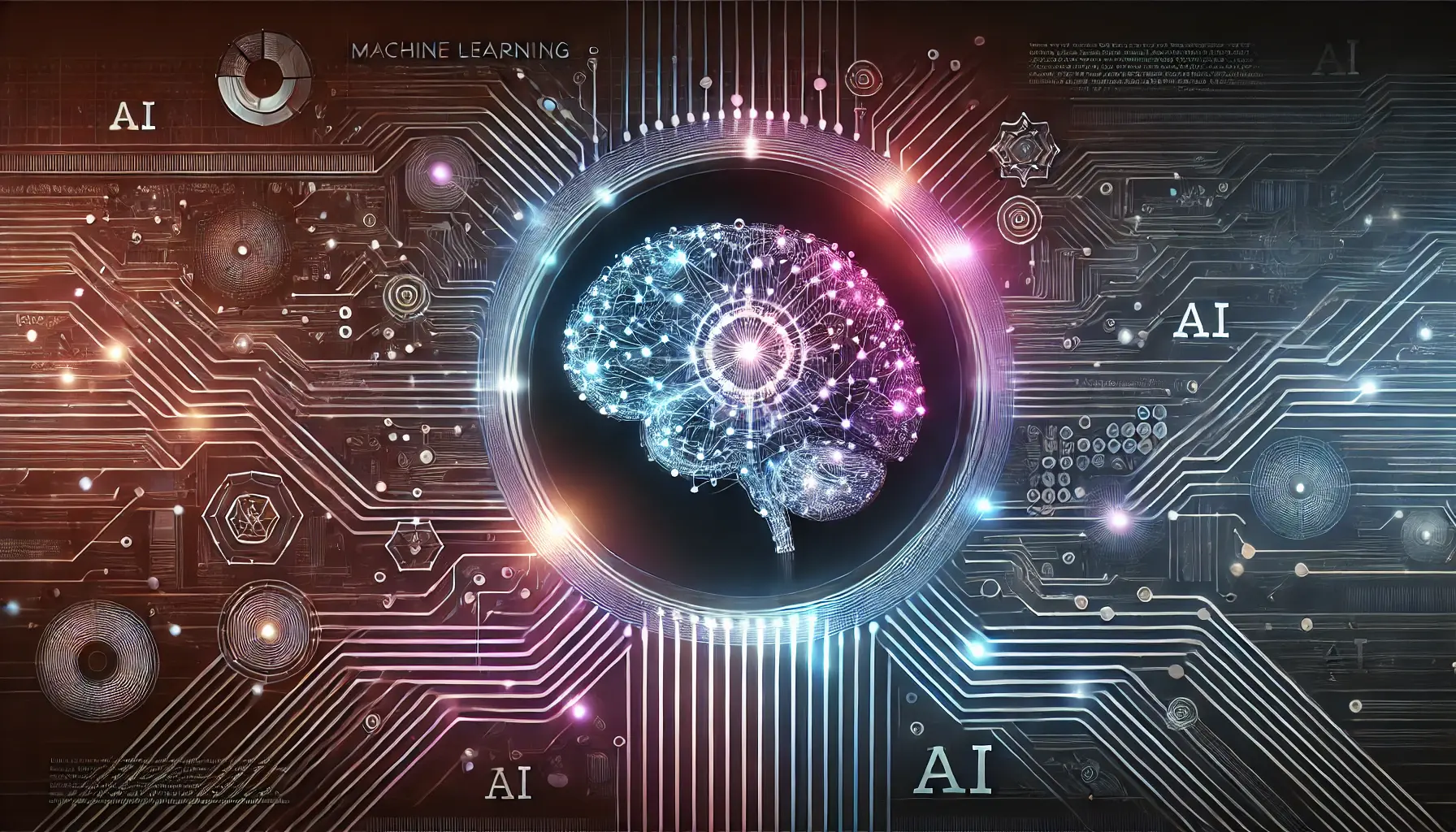Local Search Engine Optimization (SEO) has always been about connecting with your audience at the community level.
But with the advent of machine learning, the landscape of local SEO is undergoing a transformative shift.
This technology, a branch of artificial intelligence, is not just reshaping how we approach SEO strategies but is also redefining the way businesses interact with their local audiences.
Machine learning in local SEO is more than a buzzword; it’s a tool that’s changing the game.
By leveraging machine learning, businesses can now analyze vast amounts of data, predict consumer behavior, and personalize their marketing efforts like never before.
This article delves into the intricate role of machine learning in revolutionizing local SEO strategies.
- Machine Learning in the Context of Local SEO
- Local SEO with Predictive Analytics
- Machine Learning’s Role in Local Content Strategy
- Optimizing Local Business Listings with Machine Learning
- Machine Learning in Local SEO Analytics and Reporting
- Local SEO and the Future of Machine Learning
- Challenges in Machine Learning for Local SEO
- Embracing the Future: Machine Learning in Local SEO
- Machine Learning in Local SEO: FAQs
Machine Learning in the Context of Local SEO
At its core, machine learning is about teaching computers to learn from and make decisions based on data.
In the realm of local SEO, this means algorithms can analyze search patterns, user behavior, and preferences to deliver highly personalized local search results.
This capability is crucial for businesses aiming to target customers within a specific geographic area.
Machine learning algorithms are adept at sifting through layers of data to find patterns that humans might miss.
They can adapt to new data, learning and evolving as they process more information.
This continuous learning process is what makes machine learning an invaluable asset in local SEO.
Impact on Local Search Results
Machine learning significantly impacts how search engines like Google rank and display local search results.
By understanding user intent and preferences, these algorithms can tailor search results to be more relevant and useful to the searcher’s specific local queries.
This personalization is key to improving the user experience and is a critical factor in driving local traffic to businesses.
For instance, a search for “best coffee shops” will yield different results for someone in New York City compared to someone in San Francisco, thanks to machine learning algorithms understanding and integrating the user’s location into the search results.
Key Point: Machine learning enables search engines to provide more accurate and personalized local search results, enhancing user experience and benefiting local businesses.
Local SEO with Predictive Analytics
One of the most significant advantages of machine learning in local SEO is its ability to perform predictive analytics.
This involves analyzing past consumer behavior to forecast future actions.
By understanding these patterns, businesses can tailor their SEO strategies to align with potential customer needs and preferences.
Predictive analytics in local SEO helps in several ways:
- Identifying Emerging Trends: Machine learning algorithms can detect shifts in local search trends, allowing businesses to adapt their content and keywords accordingly.
- Personalizing User Experience: By predicting what local customers are searching for, businesses can create more targeted and relevant content.
- Optimizing for Seasonal Changes: Seasonal trends can significantly impact local search behavior. Predictive analytics helps businesses anticipate and prepare for these changes.
Case Study: Local Restaurant SEO
Consider a local restaurant that uses machine learning to analyze search trends and customer reviews.
By understanding popular menu items and peak dining times, the restaurant can optimize its website content, including menu descriptions and blog posts, to match what local customers are searching for.
This targeted approach not only improves the restaurant’s search engine rankings but also attracts more local customers.
Furthermore, predictive analytics can help the restaurant prepare for seasonal changes.
For example, if data shows an increased interest in outdoor dining during summer, the restaurant can highlight its patio seating in its local SEO efforts.
Idea: Leveraging machine learning for predictive analytics in local SEO allows businesses to stay ahead of trends and meet customer needs more effectively.
Machine Learning’s Role in Local Content Strategy
Content is a cornerstone of SEO, and machine learning is revolutionizing how local businesses approach their content strategy.
By analyzing user interactions and engagement, machine learning provides insights into the types of content that resonate most with local audiences.
Here’s how machine learning transforms local content strategy:
- Content Personalization: Machine learning algorithms can tailor content to the local audience’s preferences, increasing engagement and relevance.
- Optimizing for Voice Search: With the rise of voice-activated devices, optimizing for voice search becomes crucial. Machine learning helps understand natural language queries, allowing businesses to optimize their content for how people actually speak.
- Effective Keyword Utilization: Beyond identifying popular keywords, machine learning can uncover long-tail, conversational phrases used in local searches, offering opportunities to capture niche markets.
Enhancing User Engagement Through Localized Content
Machine learning enables businesses to create content that’s not just locally relevant but also engaging.
For instance, a local hardware store can use machine learning to identify DIY trends in the community.
By creating helpful guides and how-to videos on these topics, the store can attract more local customers to its website and physical location.
This approach not only boosts the store’s search engine rankings but also establishes it as a helpful and authoritative source in the local community.
Note: The integration of machine learning in content strategy empowers businesses to create more impactful and locally tailored content, enhancing both online visibility and customer engagement.
Optimizing Local Business Listings with Machine Learning
Local business listings play a vital role in local SEO, and machine learning is key to optimizing these listings effectively.
Accurate and consistent listings across various platforms are crucial for local businesses to be found online.
Machine learning aids in managing and optimizing these listings for better local search visibility.
Key aspects of optimizing local business listings with machine learning include:
- Consistency Across Platforms: Machine learning algorithms can scan various directories and platforms to ensure information consistency, such as business name, address, and phone number.
- Reputation Management: By analyzing customer reviews and ratings, machine learning helps businesses understand public perception and respond appropriately.
- Enhanced Visibility: Machine learning can identify the most effective keywords and categories for a business, ensuring that the listings are optimized for relevant local searches.
Improving Customer Interaction and Feedback
Machine learning not only helps in maintaining accuracy in listings but also in enhancing customer interaction.
For example, a local salon can use machine learning to analyze customer feedback from various listing platforms.
This analysis can reveal insights into popular services or areas needing improvement, allowing the salon to tailor its offerings and improve customer satisfaction.
Additionally, machine learning can automate responses to common queries on these platforms, ensuring timely and consistent communication with potential customers.
Truth: Effective management and optimization of local business listings through machine learning significantly enhance a business’s local search presence and customer engagement.
Machine Learning in Local SEO Analytics and Reporting
Analytics and reporting are critical for understanding the effectiveness of local SEO strategies.
Machine learning dramatically enhances the capability to analyze large sets of data, providing deeper insights into local SEO performance.
Key benefits of using machine learning in local SEO analytics include:
- Detailed Consumer Insights: Machine learning algorithms can process vast amounts of data to reveal detailed insights about local consumer behavior and preferences.
- Performance Tracking: Businesses can track the performance of their local SEO strategies more accurately, identifying what works and what needs improvement.
- Competitive Analysis: Machine learning tools can analyze competitors’ local SEO strategies, offering valuable insights for businesses to refine their own approaches.
Real-Time Data for Agile Decision-Making
One of the most significant advantages of machine learning in analytics is the ability to process and interpret data in real-time.
This allows businesses to make agile, informed decisions.
For instance, a local bookstore can use real-time data to understand which author events or book genres are attracting more local interest, adjusting their marketing and event strategies accordingly.
This real-time analysis ensures that businesses stay ahead of the curve, adapting quickly to changing local market trends and consumer behaviors.
Featured Info: Machine learning in local SEO analytics provides businesses with real-time insights, enabling them to make data-driven decisions swiftly and effectively.
Local SEO and the Future of Machine Learning
The future of local SEO is inextricably linked with the advancements in machine learning.
As technology evolves, so does the landscape of local search engine optimization.
The integration of machine learning is not just a trend but a fundamental shift in how local SEO will be conducted in the future.
Anticipated developments in local SEO driven by machine learning include:
- Advanced Personalization: Future machine learning algorithms will offer even more personalized search experiences, making local SEO strategies more effective and customer-centric.
- Automated SEO Tasks: Many routine SEO tasks will become automated, allowing businesses to focus more on strategy and less on manual processes.
- Enhanced User Experience: Machine learning will continue to refine the understanding of user intent, leading to more relevant and engaging local search results.
Adapting to the Evolving SEO Landscape
As machine learning continues to shape the local SEO landscape, businesses must adapt to stay competitive.
This means embracing new technologies, staying informed about the latest trends, and being willing to innovate.
For example, a local fitness center could use machine learning to analyze workout trends in the community, offering classes and programs that align with local interests and search trends.
This proactive approach ensures that businesses not only keep up with the evolving landscape of local SEO but also use it to their advantage to stand out in their local markets.
Idea: Embracing the advancements in machine learning is crucial for businesses to adapt to the future of local SEO, ensuring continued relevance and competitiveness in their local markets.
Challenges in Machine Learning for Local SEO
While machine learning presents numerous opportunities for enhancing local SEO, it also brings its own set of challenges.
Navigating these challenges effectively is key to leveraging the full potential of machine learning in local SEO strategies.
Some of the challenges and opportunities in this realm include:
- Data Privacy and Security: With the increasing use of machine learning, handling data responsibly becomes crucial. Businesses must ensure they adhere to privacy laws and protect user data.
- Keeping Up with Rapid Technological Changes: The pace of advancement in machine learning technology is rapid. Staying updated and adapting to these changes is both a challenge and an opportunity for businesses.
- Resource Allocation: Investing in the right machine learning tools and technologies is essential for maximizing the benefits of local SEO.
Maximizing Machine Learning in Local SEO
To overcome these challenges, businesses need to develop a strategic approach.
This includes investing in training and resources to understand and utilize machine learning technologies effectively.
For instance, a local boutique might invest in machine learning tools to analyze customer shopping patterns, using this data to optimize their online and in-store marketing efforts.
Additionally, staying informed about the latest developments in machine learning and local SEO ensures that businesses can quickly adapt to changes and maintain a competitive edge.
Note: Successfully navigating the challenges of machine learning in local SEO opens up significant opportunities for businesses to enhance their local search presence and customer engagement.
Embracing the Future: Machine Learning in Local SEO
The integration of machine learning into local SEO marks a significant shift in how businesses approach online visibility and customer engagement.
As we have explored, machine learning offers a plethora of opportunities for local businesses, from enhancing content strategies and business listings to refining SEO analytics and adapting to future trends.
Key Takeaways for Local Businesses
Local businesses stand at a pivotal point where embracing machine learning in SEO can lead to unprecedented growth and customer connection.
Here are some key takeaways:
- Personalization is the future: Machine learning allows for highly personalized local search experiences, making it essential for businesses to tailor their content and services to meet the specific needs of their local audience.
- Adaptability is crucial: The rapid evolution of machine learning technology requires businesses to stay agile and informed, adapting their strategies to leverage new tools and insights effectively.
- Data-driven decision making: Utilizing machine learning for analytics ensures that businesses make informed decisions based on real-time data and insights, enhancing their local SEO efforts.
Final Thoughts on Machine Learning in Local SEO
As we look to the future, the role of machine learning in local SEO is only set to grow.
Businesses that adapt to this change and harness the power of machine learning will find themselves ahead of the curve, enjoying enhanced visibility and deeper connections with their local communities.
The journey into machine learning may be complex, but the rewards for local SEO are undeniable, offering a path to greater relevance, efficiency, and success in the digital world.
In conclusion, the integration of machine learning into local SEO strategies is not just a trend but a fundamental evolution in digital marketing.
By embracing this technology, local businesses can unlock new levels of personalization, efficiency, and insight, paving the way for a more connected and customer-centric future.
Want your website to top Google search rankings? Leave the SEO to our professional agency!
Machine Learning in Local SEO: FAQs
As machine learning continues to reshape the landscape of Local SEO, it’s natural to have questions about its impact and implementation. Here are some frequently asked questions to help you understand this evolving field better.
Machine learning in Local SEO refers to the use of AI algorithms to analyze data and improve search strategies for local businesses.
Machine learning enhances Local SEO by personalizing search results, predicting trends, and improving user experience.
Yes, by analyzing user behavior and preferences, machine learning can significantly improve local search rankings.
While not mandatory, machine learning is increasingly essential for competitive and effective Local SEO strategies.
Businesses can implement machine learning in SEO by using AI-powered tools for analytics, content optimization, and trend analysis.
Challenges include keeping up with rapid technological changes and ensuring data privacy and security.
Yes, small businesses can benefit by using machine learning to target local audiences more effectively.
No, machine learning complements human expertise by providing data-driven insights for SEO strategies.










